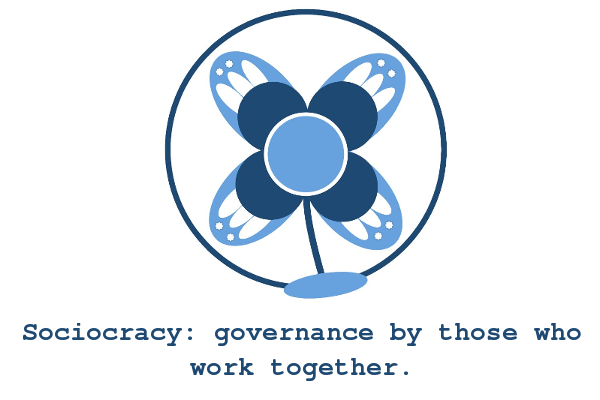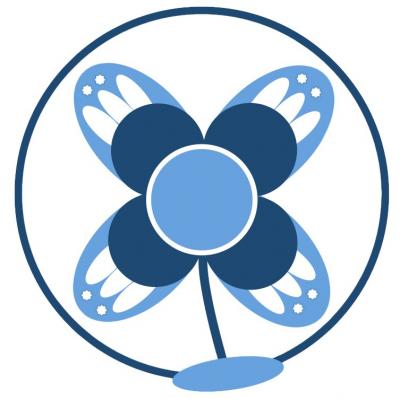
 At an informal weekend gathering in Cabot, VT in the summer of 2016, we were asked to guide a group of strangers on making a decision together. The decision to be made was which topics the group would devote our precious time together. We started a first go-around, following the standard Sociocratic process. It seemed easy. Our facilitator made a proposal and we all seemed to be on the same page. Then someone in our group — let’s call him Mark — objected to the proposal. He felt strongly about one of the parts of the proposal. Without any process, our group decision would likely have come to a halt. We might have turned into potential winners and losers, and the objector might have become the “perpetrator” who threw a monkey wrench into the harmonious group process. (Or we might have come to a compromise, although compromises oftentimes make everyone feel a little bit like a loser.)
At an informal weekend gathering in Cabot, VT in the summer of 2016, we were asked to guide a group of strangers on making a decision together. The decision to be made was which topics the group would devote our precious time together. We started a first go-around, following the standard Sociocratic process. It seemed easy. Our facilitator made a proposal and we all seemed to be on the same page. Then someone in our group — let’s call him Mark — objected to the proposal. He felt strongly about one of the parts of the proposal. Without any process, our group decision would likely have come to a halt. We might have turned into potential winners and losers, and the objector might have become the “perpetrator” who threw a monkey wrench into the harmonious group process. (Or we might have come to a compromise, although compromises oftentimes make everyone feel a little bit like a loser.)
Instead, we trusted the process. And the group trusted us. So we listened to what was behind the objection. What we heard was a courageous sharing of human longing and some pain that went way back for Mark. It was completely quiet in the room. We all got it. We did not have to take care of Mark, as he was taking care of himself. But we cared!
After understanding what was behind his objection, adjusting the proposal so it would work for him was easy. We quickly consented to the slightly modified proposal.
When we reviewed what the process had felt like to group members, many noted how we had achieved so many things at the same time:
- We had made a decision that worked for everyone. 10 for effectiveness.
- We had gotten to know Mark better on a meaningful level. We all appreciated that.
- Mark knew his point was heard and considered by the whole group.
- Trust and appreciation had grown in our group of almost complete strangers.
Something had changed during the process. There was affection. Trust. Curiosity. One group member called what she felt “healing” and “almost sacred.” She was not the first one to experience that in sociocratic decision making.
So what is sociocracy? Sociocracy translates to “governance by those who work together,” and the essence can be put into just one phrase: “no one ignored.” All the principles and tools of sociocracy contribute to bring this principle to life.
A very simple example is rounds: everyone gets a chance to speak, one by one. This sounds lengthy, and hearing everybody can take time. However, what we see is that we “frontload” decisions: by the time everyone has spoken, we already have a clear sense of where we are at as a group, and we will know already who and what has to go into our considerations. We have already learned from each other, inspired each other and included everyone. We don’t waste time on going back or having to fill in gaps or oversights, and we don’t have to smooth waves when someone did not get considered and is upset enough to slow down the process. In sociocracy, we move, almost effortlessly, like a swarm of birds or a school of fish. Every participant moves by themselves, but the group stays closely together and forms one organism.
Rounds not only support people’s voice but they also support people to listen.
Rounds are a way of hearing each other that is very different from “debate style” that happens so often when two or three people get into a heated and often unproductive discussion on who is right. Rounds not only support people’s voice but they also support people to listen. Far beyond only rounds, sociocracy is a smart collection of concepts and tools that support and build on each other. Sociocracy also answers how all work can be done without double work or things falling through the cracks.
Sociocracy was developed in the Netherlands, refined by Gerard Endenburg, and has been used there for decades. It has only been in the last few years that sociocracy (aka Dynamic Governance) has become known more widely known in the US. Sociocracy is gaining popularity across Europe quickly, and there are strong beginnings in South America and on other continents. In the US, sociocracy is typically known and used by cohousing communities, ecovillages and worker coops.
Using sociocracy in cooperative contexts is an obvious choice given that self-ownership is a precondition of true self-governance. Sociocratic organizations own themselves. The vision is a deeply transformative change: sovereignty of people that make decisions where they are involved and affected, as deeply caring human beings. People know their machines, their customers, their tools, their struggles, their purpose. And they make decisions, from the inside out, with people they know.
We have taught sociocracy and helped implement it in organizations for years. Often, participants in workshops go home after an inspiring weekend and they are sure they want to live sociocracy in their (paid or volunteer) work. Sociocracy is not just a sweet idea - it reveals its strengths and its healing beauty in the doing.
For sociocracy trainers and consultants, this means that teaching sociocracy is understood best when it is lived. For this reason, the non-profit “Sociocracy For All” offers an innovative training design in which a sociocratic “pop-up” organization is provided for the participants. The idea is to create a win-win-win: participants get to try out sociocracy with live guidance from trainers. They also do real work together by producing content about sociocracy that can be given back to the public so we all can learn. Training and circle work is done online which makes it affordable and international.
We understand sociocracy as an operating system that will help catalyze change. Sociocracy For All’s aim is to keep spreading the word that how we make decisions is part of how we impact what we do and who we do it with. Culture change is a mindset change towards collaboration and win-win, and sociocracy offers the tools to make these ideals live within any organization.
The Sociocracy Leadership Training (SoLT) is offered quarterly. Visit the Sociocracy for All website to see when the next round begins.
Watch the 14-minute documentary with original footage from SoLT meetings on YouTube and see our free training videos in our YouTube channel.
Follow us on Twitter at @Sociocracy4All
Like us on Facebook
Go to the Sociocracy / Dynamic Governance Theme Page
Go to the GEO front page
Citations
Jerry Koch-Gonzalez (2017). Sociocracy: Connecting Humans for a Shared Purpose. Grassroots Economic Organizing (GEO). https://geo.coop/story/sociocracy-connecting-humans-shared-purpose

Add new comment